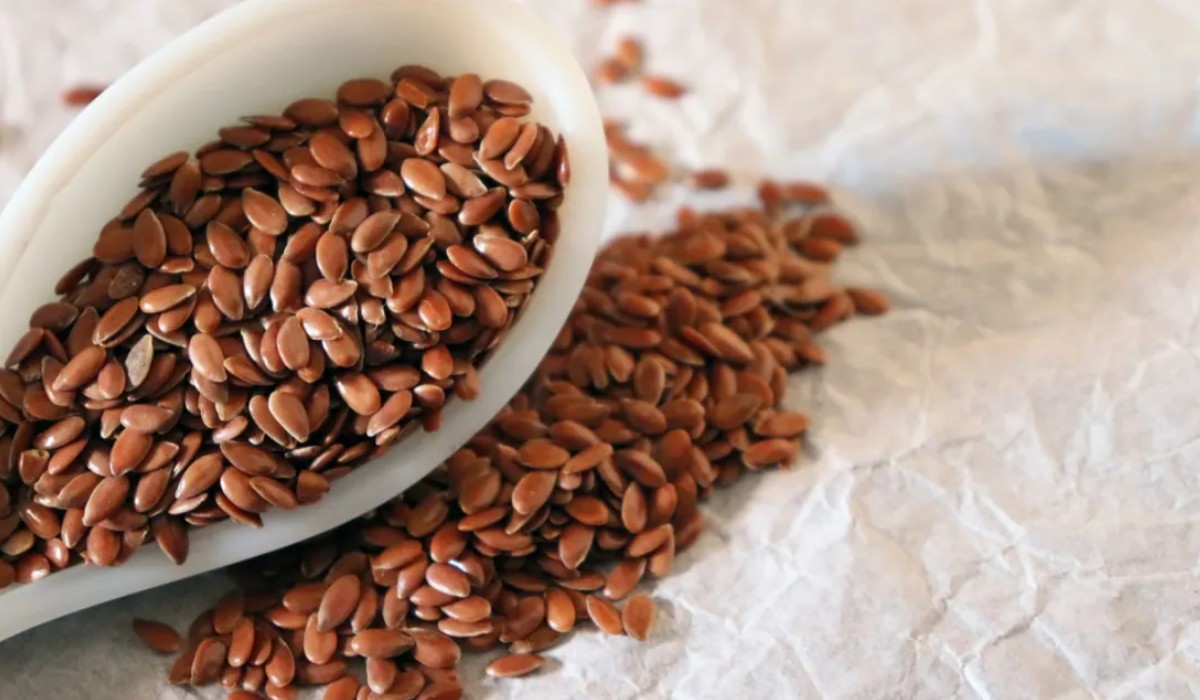In recent years, flax seeds have gained popularity as a superfood packed with essential nutrients and health benefits. These tiny seeds, derived from the flax plant (Linum usitatissimum), have been consumed for centuries and are renowned for their nutritional value. Incorporating flax seeds into your daily diet can lead to various positive effects on your body and overall well-being.
Here’s what happens to your body when you start eating flax seeds daily:
Rich Source of Nutrients:
Flax seeds are loaded with essential nutrients, including omega-3 fatty acids, fiber, protein, vitamins, and minerals. These nutrients play crucial roles in maintaining optimal health, supporting various bodily functions.
Also Read: Bangalore water board to take over borewells at construction sites
Improved Digestive Health:
One of the key benefits of consuming flax seeds is their high fiber content. Fiber aids in digestion by promoting regular bowel movements, preventing constipation, and supporting overall digestive health. Adding flax seeds to your diet can help alleviate digestive issues and promote gut health.
Heart Health:
Flax seeds are known for their heart-healthy properties, primarily due to their high omega-3 fatty acid content. Omega-3s help reduce inflammation, lower blood pressure, and decrease the risk of heart disease. Incorporating flax seeds into your daily diet may contribute to a healthier heart and improved cardiovascular function.
Also Read: अजमेर: साबरमती-आगरा सुपरफास्ट और मालगाड़ी की टक्कर, कई ट्रेनें रद्द
Lower Cholesterol Levels:
The soluble fiber in flax seeds, known as mucilage, can bind to cholesterol in the digestive tract and help eliminate it from the body. Regular consumption of flax seeds has been associated with lower levels of LDL (bad) cholesterol, thereby reducing the risk of heart disease and stroke.
Weight Management:
Flax seeds are relatively low in calories but high in fiber and protein, making them a satisfying addition to meals and snacks. The fiber and protein content in flax seeds helps promote feelings of fullness and satiety, potentially aiding in weight management and reducing calorie intake.
Balanced Blood Sugar Levels:
Flax seeds may help regulate blood sugar levels, particularly in individuals with diabetes or insulin resistance. The soluble fiber in flax seeds slows down the absorption of sugar into the bloodstream, preventing spikes in blood glucose levels after meals.
Also Read: Putin warns Russia-Nato conflict is ‘one step away from World War 3’
Anti-Inflammatory Properties:
Flax seeds contain lignans, which are plant compounds with antioxidant and anti-inflammatory properties. These compounds help reduce inflammation in the body, which is linked to various chronic diseases, including arthritis, diabetes, and certain types of cancer.
Improved Skin and Hair Health:
The omega-3 fatty acids and antioxidants found in flax seeds can contribute to healthy skin and hair. Consuming flax seeds regularly may help reduce skin inflammation, hydrate the skin, and promote a radiant complexion. Additionally, flax seeds may support hair growth and prevent hair loss.
Enhanced Brain Function:
Omega-3 fatty acids are essential for brain health and cognitive function. Incorporating flax seeds into your diet can support brain health, improve memory, and reduce the risk of age-related cognitive decline.
Also Read: RCB break 16-year trophy drought, beat DC by 8 wickets to clinch WPL 2024 title
Cancer Prevention:
Some studies suggest that the lignans in flax seeds may have protective effects against certain types of cancer, including breast, prostate, and colon cancer. These lignans have been shown to inhibit tumor growth and reduce the risk of cancer development.
In conclusion, adding flax seeds to your daily diet can have numerous beneficial effects on your body and overall health. From improved digestion and heart health to better skin and hair, flax seeds are a nutritional powerhouse packed with essential nutrients and health-promoting properties. Consider incorporating flax seeds into your meals, smoothies, or snacks to reap the many health benefits they offer. However, it’s essential to consume flax seeds in moderation and consult with a healthcare professional if you have any underlying health conditions or concerns.











